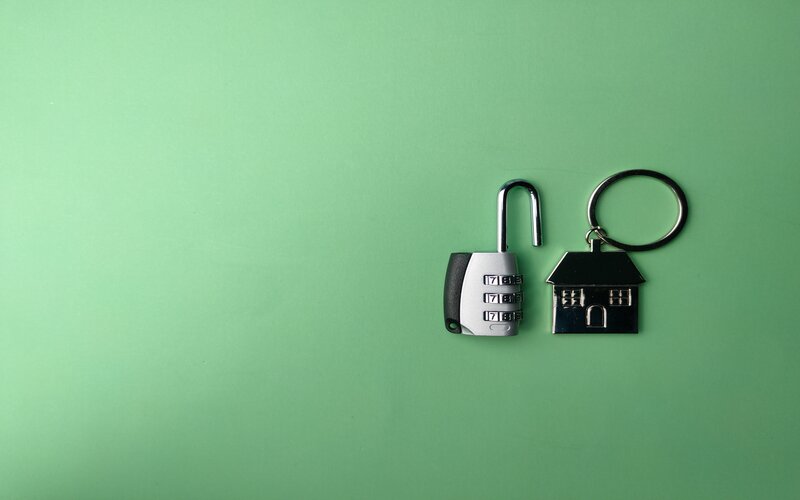You’ve probably heard of cooling off periods, and as the name suggests they could provide a bit of leeway if you’re regretting putting the wheels in motion to buy a property. However, you might not know what actually happens if you pull out of a property sale, and how this could affect you. Luckily, there’s not likely to be anyone waiting at your door to break your knees (probably), but you could be out of pocket.
Advertisement
Buying a home or looking to refinance? The table below features home loans with some of the lowest interest rates on the market for owner occupiers.
| Lender | Home Loan | Interest Rate | Comparison Rate* | Monthly Repayment | Repayment type | Rate Type | Offset | Redraw | Ongoing Fees | Upfront Fees | LVR | Lump Sum Repayment | Additional Repayments | Split Loan Option | Tags | Features | Link | Compare |
|---|---|---|---|---|---|---|---|---|---|---|---|---|---|---|---|---|---|---|
6.04% p.a. | 6.06% p.a. | $2,408 | Principal & Interest | Variable | $0 | $530 | 70% | Featured Online ExclusiveUp To $4K Cashback |
| |||||||||
5.99% p.a. | 5.90% p.a. | $2,396 | Principal & Interest | Variable | $0 | $0 | 80% | Featured Apply In Minutes |
| |||||||||
5.99% p.a. | 6.51% p.a. | $2,589 | Principal & Interest | Variable | $0 | $530 | 90% |
What happens if I pull out of a property sale?
There are two main avenues for purchasing a property - private treaty, or at an auction. Pulling out of a sale differs slightly depending on which avenue you have taken, and the state or territory in which you live.
Buyer's agent Michelle May walked Savings.com.au through a few scenarios, with context particularly given to purchasing in New South Wales.
Buying at auction
When buying at auction, you know where you stand - put simply, if you bid you buy.
“As soon as you make a bid at an auction, you're committing to buy the property for the price you bid. When the hammer goes down, the sale becomes unconditional, and you don't have any cooling off period,” Ms May said.
“The contract for sale will outline the consequences for withdrawing, which usually includes default penalties and compensation for any loss the seller has incurred.”
If you're buying at auction, it's important you have a 5-10% deposit ready to go, with pre-approval from your lender.
Buying through private treaty
Private treaty is where it gets a little more convoluted, and depends more heavily on the state in which you purchase and whether the contract is unconditional (like at auctions) or conditional.
“Most contracts exchanged in a private treaty sale include a cooling-off period. Depending on pre-sale negotiations, it is possible to waive, reduce, or extend cooling-off periods on standard contracts,” Ms May said.
“In New South Wales, it's standard that you have five business days starting from the contract exchange until 5 pm on the fifth day to back out.
“If you withdraw during the cooling-off period, you'll have to pay 0.25% of the purchase price as a penalty and will also be out of pocket for any conveyancing or legal fees you've incurred.
“If you pull out of the sale after the cooling-off period, you'll have to pay a penalty of 10% of the purchase price, which can hit a few hundred thousand dollars in Sydney.
“In some circumstances, the property seller may even seek compensation for the difference between the buyer's offer that was pulled out and the price that the property eventually sold for.”
However, there is one method that could catch buyers out at private treaty - in New South Wales anyway…
Issuing a Section 66W Form (in New South Wales)
“This form allows the buyer to waive the five-day cooling-off period making the sale unconditional. Generally, a 66W makes an offer more attractive to the seller and can help the buyer secure the property in a competitive market,” Ms May said.
“However, as the sale becomes unconditional, the buyer will be penalised as per the original contract, generally 10% of the purchase price, if they pull out of the sale.”
Penalties for pulling out of an unconditional property contract
|
State |
In Cooling Off Period |
Penalty on Median House Price (Capital City - June 2021) |
|---|---|---|
|
QLD |
0.25% of purchase price |
$1,625 |
|
NSW |
0.25% of purchase price |
$2,968.75 |
|
VIC |
$100 or 0.2% of purchase price - whichever is greater |
$1,790 |
|
SA |
$100 of deposit |
- |
|
ACT |
0.25% of purchase price |
$2,300 |
|
NT |
No penalty, full refund of deposit applies |
- |
Sources: Government websites and ABS. Information was correct at time of writing. Tasmania and Western Australia do not have default cooling off periods.
And what about after the cooling off period?
The above penalties apply to pulling out of a purchase within the cooling off period. After a cooling off period, getting out of a contract becomes a lot more onerous, and not without significant penalties. Such penalties could include a percentage of the deposit or total purchase price, plus any conveyancing fees, or building and pest inspection costs. As detailed above, in NSW the penalty in this case could be 10% of the property purchase price.
The information above is also general in nature, pertaining to unconditional contracts, and doesn’t account for specific contract conditions i.e. conditional contracts. You may also be liable for both the seller’s and your conveyancing or legal fees. In addition, cooling off periods differ from state to state.
Buyer beware
“Sometimes people do get in too deep with an unsuitable property purchase and find themselves in an almighty scramble to get out,” Ms May said.
“Buying a property is a big deal and takes a lot of research, investment, and time. Unfortunately, in fast-moving markets, time is in short supply, and it can lead buyers to make decisions they regret.”
So, what do you do?
“It feels like my catch phrase because I always say that buyers should do as much due diligence as possible because pulling out of a property sale has significant consequences. In fact, it could cost you hundreds of thousands of dollars,” Ms May said.
“When you think about how much money is on the line, it highlights how important it is to understand your risks as a buyer.
“There may not be enough time to complete all inspections and go through any reports before the sale in the current market.
“In that case, make sure you do your due diligence in the five-day cooling-off period. The difference can save you a lot of money and stress.”
Heckin' nervous fren by Akiko Campbell on Pixabay

Ready, Set, Buy!
Learn everything you need to know about buying property – from choosing the right property and home loan, to the purchasing process, tips to save money and more!
With bonus Q&A sheet and Crossword!





 Brooke Cooper
Brooke Cooper

 Harry O'Sullivan
Harry O'Sullivan

 Rachel Horan
Rachel Horan

